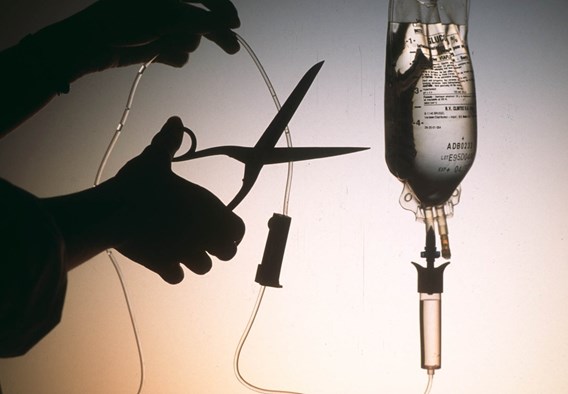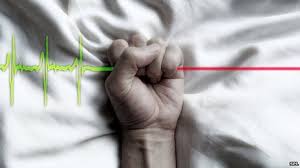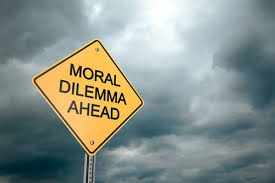
ALL FACES OF THE BIGGEST DEBATE EVER

“Dying is not a crime.”
― Jack Kevorkian
Humans are the most powerful species on the Earth and they have ability to decide about the life or death of the other species. That is the advantage of being the strongest, to be on the top of the food chain. But, being the greatest is sometimes also very hard. It takes serious responsibility and emotional intelligence to handle all things, without tears and pain, without the signs that also the best have their low moments.
The debate of legality of euthanasia is old almost like a human awareness of pain. In last 50 years, it seems that medicine is fighting the unstoppable battle to endure the life and chase away the death but there are still cracks in between, the absence of light, the terrible pain and misery for those who are targeted by diseases, accidents and the cruel game of the destiny. When we are facing up with the agony of our pets, with the facts that our beloved dogs or cats will never be healthy again, the vet is offering us an injection of paradise for our lovely animals. That is almost like a key for good death, after soreness they cant deal with. Most of us would sacrifice all we have to give them back what they had, to drag them into the sun. But, the shadows of final end do not let the love in, they turn the appetite for life in begging for death. The eyes of our pets reflect the terrible suffering and we cant stand that….all we have to do is to comfort them and to let them peacefully die, without long torment. We help them to go slightly on the other side of the rainbow. We love them and we don’t want their pain, we decide for them. Euthanasia is some kind of mercy for the poor creatures.

The real controversy of euthanasia begins with the people. The ethic of that act is still the most questionable issue in the medical and social discussions. It is not only about the emotional side of the decision if someone is ready to be helped to die, it is about the set thoughts that cover religious, cultural and legal objectives.

According to one medical journal, the euthanasia is described as practice of ending a life, with the main purpose to end the discomfort and pain:” The process is also sometimes called Mercy Killing. Euthanasia can fall into several categories. Voluntary Euthanasia is carried out with the permission of the person whose life is taken. Involuntary euthanasia is carried out without permission, such as in the case of a criminal execution. Voluntary euthanasia is typically performed when a person is suffering from a terminal illness and is in great pain. When the patient performs this procedure with the help of a doctor, the term assisted suicide is often used. This practice is legal in Belgium, the Netherlands and Luxemburg. It is also legal in the state of Oregon, Washington and Montana. Passive euthanasia is carried out by terminating a medication that is keeping a patient alive or not performing a life-saving procedure. Active euthanasia involves the administration of a lethal drug or otherwise actively ending the life. These two types of procedures carry different moral and social issues.”

So, as we see, the euthanasia is bringing many opened debates because it is challenging the spiritual and religious feelings of the people and also the legality of medical practice of ending the life that is already in pain.
There are many who are pro euthanasia as well as those who are against. Mostly, those who consider euthanasia as a murder or through the negative context forget the fact that all people should have free choice to decide how they will die. If they are in pain, hey have right to end that agony and to chose the merciful death. It is an ethical argument that supports the legality of euthanasia. On the other side, those who confront the right on euthanasia do not consider the meaning of quality of life. They hold on the old religious patterns that life, even in pain, is more sacred as death itself. I would say they should have right on that life in pain but they also should let others decide for themselves. If it is a matter of time when the severe sick person will die and in which level of soreness will be found, then we should accept the will of that person to end painful life. It is not anymore about the quality of life but about the horror of pain. This is not only devastating for the targeted human being but as well as for the beloved family.

The hidden element of euthanasia is just a fact that many apply this practice but using another names or excuses for it. The medical experts say it would be better for all if this issue would be legalized and controlled by the system. Only in that way, the negative outcome of the euthanasia could be also monitored and possibly stopped anything that could go in malign direction.
The euthanasia is more controversial than any other public concern. It steps into the field of social behaviour, emotional relations, justice, crime and medicine. That is a collage of different opinions with the same goal: to be or not to be:“From a legal standpoint, the Encyclopedia of American Law categorizes mercy killing as a class of criminal homicide. Judicially, not all homicide is illegal. Killing is seen as excusable when used as a criminal punishment, but inexcusable when carried out for any other reason. In most nations, euthanasia is considered criminal homicide: however, in the jurisdictions mentioned above, it is placed on the other side of the table with criminal punishment.Arguments regarding the euthanasia debate often depend on the method used to take the life of the patient. The Oregon Death with Dignity Act made it legal for residents to request a lethal injection from a doctor. This is seen in other jurisdictions as being a criminal form of homicide. However, passive euthanasia through denial of drugs or procedures is considered to be legal in almost all jurisdictions. Those who argue for euthanasia feel that there is no difference. Those who are against it disagree.”

What I found very amazing is the survey about the opinions of the doctors themselves in the U.S. Among those 10,000 medical doctors that have participated in the case study, 16% would accept the form of euthanasia but 55% would never do that. But, there is a group of 46% of physicians who believe that assisted suicide should be allowed in some cases.
As we can see, the all surrounding problems about the merciful killing are nothing but the silent addressing of other important questions: the motives of euthanasia, the legality of decision and the medical approvement of this action.

The bioethics deals with some of these alternatives and offers the solutions for all diagonal ideas. It is not the big deal to legally set up the euthanasia but to solve the potential consequences of including the merciful death into the healthcare. For this type of analyses, it is often used the slippery slope argument. Somehow, I see the logic in this argument that finds the negative results of legal implementation of euthanasia. What could possibly go wrong?It is simply the fear that at the moment when system is starting killing( voluntary) its own citizens, it is just a breaking point when the line will be crossed and the deaths will be delivered just as the rational solution of the goverment. That could be a futuristic scenario but it could also gather the social burdens. If euthanasia is legalized, the real sick people who would possibly chose to live, are under the pressure to chose the merciful death so to not be the problem for their families and healthcare. It also could be abused and manipulated, especially when it comes to the family fight for the money and heritage of the patient. And at the end of the day, asking doctors to end someone’s life is the same as slapping all their efforts to find the way to endure the life, the big attack on their professional and ethical standards and the formulas of sciences to save the mankind and prolong the existence.

Personally, I believe that euthanasia should be allowed in some situations and under the special circumstances. That doesn’t mean global legal worshiping of merciful death but also the possibility for people who want definite end without pain. I believe it should be a legal right of every person who is facing up with hard disease that brings darkness and sharp teeth of pain. The people who are dealing with such kind of diseases or difficult outcomes of the accidents should be allowed to chose the way they will die and when their suffering will be ended. In any other cases, we should be very careful with the wishes of euthanasia not because of those who want it because they are sick, but because of the evil nature of the people. There are always those who could abuse the euthanasia to get rid of someone and to get something they want. Then, it is the tiny border between merciful killing and planned killing. Only then, euthanasia is a legalized homicide.
The euthanasia will be debated many years from now but the base of it will remain the same: are we really ready to give up on our lives and when ?


Thank you, dear Sarah, for an excellent article. I believe that Euthanasia or Mercy Killing should never be allowed in any situation, regardless of the circumstances. Who are we to end the life of any individual including ours? It is an act of killing. Life is sacred and divine trust. It does not belong to the human. It cannot be terminated by any form of active or passive voluntary intervention. Only God decides how long each of us will live. It is He who gives and takes away life. No human can give or take it. The moment of death, is under the control of God and the human has no say in this matter; the human cannot and should not attempt to hasten or delay this moment (playing the role of God). Taking the life of an individual will cause harm to the family and society in general, and an individual’s freedom of choice should be constrained by the harm it causes to others.
LikeLike
You have surpassed yourself, yet again, Sarah ! What an outstanding article !
As you stated in your article, this subject has been so controversial for so many years. I recall when Dr. Kevorkian was involved in so many cases of “merciful death” in the 90’s ! He was on talk shows, and explained his point of view, however, people called him “doctor death” ! No one seemed to understand, or to want to understand, what his point a view was.
I concur with you in that Euthanasia, or merciful death, should be allowed in some cases, namely, the cases of terminal diseases !
However, health insurances and family members should NOT have any say in this decision, as it would open the door for all sorts of corruptions. Sadly, as we all know, most “humans” are extremely selfish and greedy and would do anything for money ! Good people with good virtues are a dying breed !
I would like to add that your opening argument about our beloved cats and dogs, and how we have to make a decision for them at the end of their life, has brought tears to my eyes ! How sad ! I am in full agreement with you as to the fact that we would give anything to bring them back !
I can’t thank you enough, Sarah, for this excellent article !
LikeLiked by 1 person
Sarah’s invaluable and imperative article brought to mind ‘The Hippocratic Oath’: in the context of bioethics, this is a highly controversial issue. Science and medicine do far much more harm than good, across the world of humans; specifically, due to the fact that multinational pharmaceutical corporations thrive on people being ill: if euthanasia is made into an International Law and human right recognised by all governments, then the lucrative industry of pharmaceuticals will implode.
It is exclaimed that the phrase ‘First do no harm’ (Latin, Primum non nocere) is a part of The Hippocratic Oath. The phrase as such does not appear in the oath; although, the oath does contain the Latin ‘Noxamvero et maleficium propulsabo’ (i.e. I will reject harm and mischief). The phrase ‘primum non nocere’ is believed to date from the 17th century.
In 1995, Sir Joseph Rotblat (1908-2005), Polish physicist, was awarded The Nobel Prize in Physics, and during his acceptance speech he referred to his wish for there to be an equivalent Hippocratic Oath for scientists; many of whom are associated with pharmaceutical R & D.
As with most ethical debates connected with the pharmaceutical industry, euthanasia is about profits against morality and ethics. A human being should have the right to decide to end his/her life, if he/she deems it to be a life not worth living; afflicted with physiological and or cerebral restrictions. If a physician keeps a patient alive through medication that only sustains minimal physiological functions, etc., then the doctor is harming the patient, because of the issues of dignity.
I have a very close friend who is dying of Multiple Sclerosis (MS), and she has decided to commit herself to a euthanasia programme in Switzerland (Dignitas), where it is recognised by the Swiss government/authorities.
Dignitas is a Swiss nonprofit members’ society providing assisted/accompanied suicide to those members of the organisation who suffer from terminal illness and or severe physical and or mental illnesses, supported by qualified Swiss doctors. Members of Dignitas who wish for an assisted suicide have to be of sound judgement, themselves able to do the last act which brings about death, and submit a formal request including a letter explaining their wish to die and most of all medical reports showing diagnosis and treatments tried. For people with severe psychiatric illnesses, additionally, an in-depth medical report prepared by a psychiatrist that establishes the patient’s condition, is required as to a Swiss Supreme Court decision.
Dignitas was founded in 1998 by Ludwig Minelli; a Swiss lawyer specialising in human rights. Swiss laws provide that assistance to suicide is legal, as long as it is not motivated by ulterior motives. The person who wishes to die meets several Dignitas personnel, in addition to an independent medical doctor, for a private consultation. The independent doctor assesses the evidence provided by the patient in advance and is met on two separate occasions, with a time gap between each of the consultations. Legally admissible proof that the person wishes to die is also created, in the form of a signed affidavit, countersigned by independent witnesses. In cases where a person is physically unable to sign a document, a short video film of the person is made in which they are asked to confirm their identity, that they wish to die, and that their decision is made of their own free will, without any form of persuasion/coercion.
Dignitas charges its patients €4,000 (£3,182/US$5,263.16) for preparation and suicide assistance, or €7,000 (£5,568/US$9,210.53) in case of taking over family duties; including funerals, medical costs and official fees. Dignitas has been known to waive certain costs where there is hardship.
Dignitas has continued to be presented in the mainstream media as a political stance on the right to die. Recently, the BBC featured an article regarding the death of British citizen Jeffrey Spector; a businessman who decided to travel to Switzerland to undergo assisted suicide through Dignitas for an inoperable tumour, which most likely would have caused paralysis later on in its development. This situation reignited the debate revolving around the morality of assisted suicides in certain dilemmas, and incited current stances concerning euthanasia. Former Lord Chancellor of Britain, Lord Falconer stated that he would ‘attempt to reintroduce a bill that would allow assisted dying in The United Kingdom’.
It should be about the quality of life and not about sustaining the pharmaceutical industry’s mammoth profits. As Sarah ends her brilliant article, ‘moral dilemma ahead…’
LikeLiked by 1 person
Very good blog! Do you have any suggestions for aspiring writers? I’m planning to start my own website soon but I’m a little lost on everything. Would you advise starting with a free platform like WordPress or go for a paid option? There are so many choices out there that I’m completely confused .. Any ideas? Many thanks!
LikeLike
After study a couple of of the blog posts on your website now, and I really like your way of blogging. I bookmarked it to my bookmark web site record and will be checking back soon. Pls check out my website as properly and let me know what you think.
LikeLike